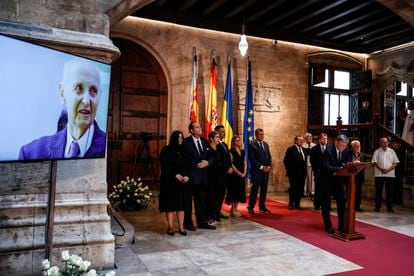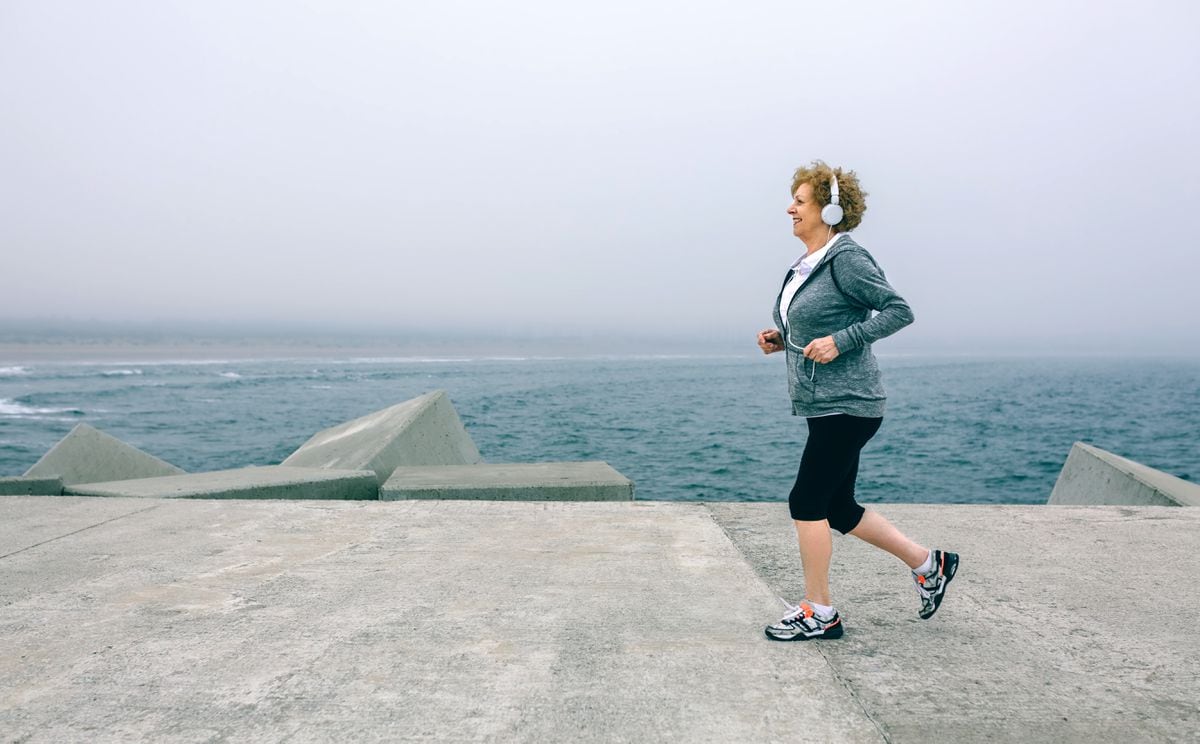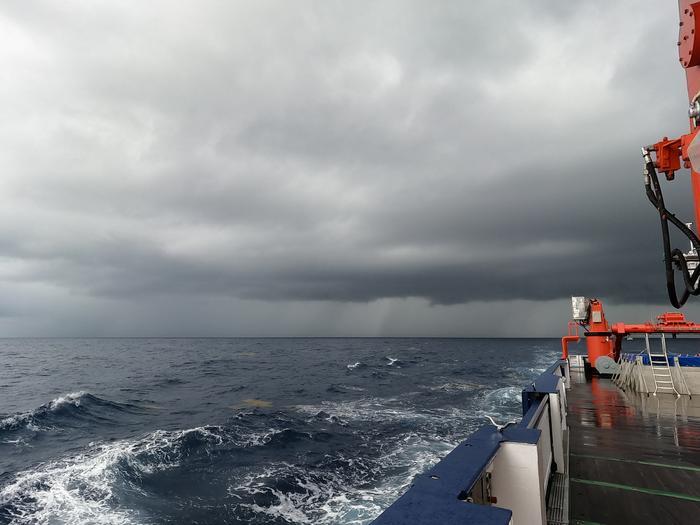I hurriedly write about Santiago Grisolía on the same day of his death in Valencia at the age of 99 years and 8 months.
I am not doing it because of my friendship and collaboration with him for almost 50 years, but because he has been a Spanish scientist of international stature, charismatic and with strong public projection for at least half a century, and even more in the medical and research field.
Also because his passage through life has improved it for us, and not just for a few, having had an important and positive social impact.
Trained as a researcher, first in Valencia with the excellent professor of Physiology José García Blanco (disciple of Juan Negrín, who was president of the Republic during the Civil War), and then in the United States with Severo Ochoa in New York and with PP Cohen in Wisconsin, made momentous discoveries on what was at the forefront of scientific research at the time, the study of enzymes (biological catalysts) and metabolism (conversions of substances in the body).
In Wisconsin, he put on solid biochemical foundations how urea is manufactured by our body, actually demonstrating the existence of the urea cycle, until then a plausible hypothesis formulated by Hans Krebs (later a Nobel Prize winner for this cycle and for the energy-producing cycle called Krebs cycle).
Their transformative commitment and enduring and relentless effort, right to the end, should be lasting examples and a reason to be thankful.
These successes led the University of Kansas to offer Grisolía the creation of the first biochemical research laboratory at the Kansas City University Medical Center, the Mac Ilwane Laboratory.
There he developed his activity for the next 20 years, until 1976, creating and directing until 1973 the Department of Biochemistry, and then as Sam E. Roberts Distinguished Professor of Biochemistry, a true personal and life chair and highest academic degree of said university. .
During his stay in Kansas, he did an extraordinary job in enzymology, then a scientific vanguard, laid the foundations for a form of treatment for sickle cell anemia, and trained many biochemists from all over the world in his department, with a large group of trained Spaniards,
During this period, his interest in Spain led him to multiple regenerationist initiatives and promoters of scientific and university modernity in our country, many of them in collaboration with Severo Ochoa.
Highlights include their contribution to the successful creation of the Spanish Society of Biochemistry and Molecular Biology (1961-1963), their contributions as advisers to the White Paper on which Villar Palasí's General Education Law was based, a radical modernizer of teaching and university Spanish, which made the public system capable of serving much broader social layers;
his participation in the organization of a great symposium in honor of Ochoa, then a Nobel laureate, which put the most modern molecular biological research on the front pages of all the media;
The Urea Cycle
, 1976, Wiley.
Grisolía, Báguena & Mayor, eds).
The president of the Valencian Generalitat, Ximo Puig, intervenes together with other authorities and relatives in the burning chapel of the Valencian scientist Santiago Grisolía, installed on Friday in the Palau de la Generalitat.Rober Solsona (Europa Press)
But his true Spanish adventure began when he accepted the direction of the Cytological Research Institute of the Caja de Ahorros y Monte de Piedad de Valencia, the biomedical research center in Valencia owned by the social work of a savings bank, a center created by the doctor -researcher Gerónimo Forteza, who died in 1975, succeeded by Grisolía.
He left in Kansas City almost his entire previous life, as well as an excellent position with extraordinary research capabilities, for a private institute that had initially been well endowed for what was usual in Spain, but whose future was considered very uncertain.
The challenge was important.
Grisolía set out to enhance the institute's existing capacities by introducing a strong biochemical component.
In this company, in which some of us were lucky enough to collaborate, the results were spectacular, even with quite modest means, resulting in a center of excellence, a true benchmark for biomedicine in Valencia for many years, and training a large number of scientists who They have populated universities and research centers around the world.
In it, for example, we prepared the carbamylglutamate used for the first time in a patient with a rare congenital disease (acetylglutamate synthase deficiency), today a specific commercial drug for the practically curative treatment of this disease, and also very effective in other congenital errors such as organic acidemias.
Scientist of international stature, with an exceptional capacity for conciliation, which allowed him cross-sectional and non-sectarian access in the societies in which he has lived
It was also there that the massive neonatal screening for congenital diseases (the heel test of The newborns).
Santiago Grisolía was not only satisfied with directing said Institute, precursor of the current Príncipe Felipe Research Center, and in part, also, of the Valencia Institute of Biomedicine of the CSIC, but Grisolía also carried out his work as a scientific researcher there until he left the direction of the center back in the 90s of the last century.
Grisolía has also been an extraordinary promoter and advocate of science in civil society until the last moment of his life, as he firmly believed in the supreme value of science as a social transformer.
First, he created and led the Valencian Foundation for Advanced Studies, convincing members of the Valencian business sector to finance it through patronage, generating numerous debate and discussion meetings within that foundation, not only on scientific problems, but also on citizen issues and of social interest.
He promoted the development of genomics and the sequencing of the human genome, with the Valencia meetings on the human genome, organized by him under the auspices of UNESCO, in which the most relevant international actors involved participated,
He also obtained public and private support that led him to the creation of the famous Rei Jaume I Awards, for whose management he created the Rey Jaime I Awards Foundation of which he was now Honorary President, awards first only for Science, but later also for Medicine. , Economy, Environment, New Technologies, Architecture and Entrepreneurship, very well endowed, with irreproachable international juries that include a large number of Nobel Prize winners.
He contributed to the creation of the architecturally exceptional and for its contents, the Principe Felipe Science Museum of Valencia, whose Council of Experts he has chaired until his death.
He was also the driving force behind the creation of the Príncipe Felipe Research Center, a modern continuation of the Valencia Cytological Research Institute, but much larger.
It is worth mentioning a political-social function that Grisolía has performed with great skill, practically since the Government of the Generalitat Valenciana reached its first powers.
This is the Presidency of the Consell Valencià de Cultura (CVC) of the Generalitat Valenciana, a body created in the Statute for the preservation and promotion of culture and the cultural legacy of the Valencian Community.
Grisolía has been its first and only president until the very day of his death, having led very important activities in that position, especially in the preservation of monuments, in the matter of the language of the Community, and in so many others in which the CVC seeks achieve a universal consensus of preservation and enhancement, also conserving the memory also with an excellent publication policy.
In summary, an exceptional person, committed and pro, with wood, boards, trade and passion of a scientist of stature and international recognition (IUBMB medal, Prince of Asturias Award), creative, hard-working and with an exceptional capacity for conciliation , largely based on the high degree of trust in him from his interlocutors, which allowed him a transversal and non-sectarian access in the societies in which he has lived.
His transformative commitment and his enduring and relentless effort, right to the end, should be lasting examples and cause for thanks.
I wish we were able to generate many people like him in our society.
We will miss him.
Vicente Rubio Zamora
, Ad Honorem Linked Research Professor, Institute of Biomedicine of Valencia, of the Higher Council for Scientific Research.
You can follow
MATERIA
on
,
and
, or sign up here to receive
our weekly newsletter
.
50% off
Subscribe to continue reading
read without limits
Keep reading
I'm already a subscriber



/cloudfront-eu-central-1.images.arcpublishing.com/prisa/ACJVKI3Z5RDEHNMZXVN5JJZOVM.jpg)











/cloudfront-eu-central-1.images.arcpublishing.com/prisa/GP2ZXWJRROQQUNBAGJPH3WIOVQ.jpg)